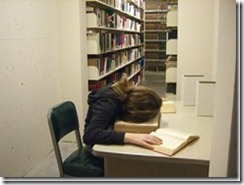
The first writ against Common Law Admission Test (CLAT) 2012 convener NLU Jodhpur was dismissed by the Delhi high court which refrained from hearing the matter which was listed for the first time yesterday. The court refused to interfere stating that the CLAT committee was already considering the petitioners’ grievances.
It was however observed that recourse to legal remedy will be open to the petitioners once the result of the examination was declared.
Justice Sunil Gaur dismissed the matter in limine, not commenting on whether CLAT 2012 exam questions disputed in the petition were out of course, reported legal website Bar and Bench.
Three CLAT takers had filed a civil writ petition in the court on 24 May 2012 against the vice chancellor and registrar of this year’s CLAT convener - NLU Jodhpur, the Bar Council of India (BCI) and the ministry of human resource and development, for questioning the examinees on topics which were out of the syllabus prescribed by the CLAT committee for 2012.
Senior advocate Sandeep Sethi appearing for NLU Jodhpur told the court that the CLAT committee’s meeting was convened in Jodhpur yesterday to deliberate on the petitioners’ grievances, and the committee intended to take a decision soon.
The judge reasoned that since the committee which disputed the contention that some of the questions were out of syllabus, was nevertheless deliberating on the grievances, the court should not interfere in “a technical matter in the academic field”.
Senior advocate Jayant Bhushan argued for the petitioners that questions which were out of the syllabus could not be considered in the evaluation procedure, relying on the Delhi high court’s judgment in Gunjan Sinha V Registrar General, High Court of Delhi.
Gaur however cited the ratio in Gunjan Sinha to observe that the examination had been challenged after declaration of results, in that case. He further cited the Supreme Court’s decision in Sanchit Bansal & Anr v Joint Admission Board & Ors where it was held that courts should not interfere in evaluation procedures on grounds of inaccuracy or inefficiency, but only on the ground of mala fides or arbitrariness.
Legally India had reported that a second writ seeking to cancel the NLU Jodhpur organised CLAT 2012 was filed, also by a CLAT 2012 taker, in the Allahbad high court on the same day as the Delhi high court writ. The writ is listed for hearing on 28 May 2012.
CLAT 2012 was held on 13 May 2012 when Legally India had first reported that several aspirants displeased with questions requiring knowledge of “Static GK” and prior legal knowledge planned to file a public interest litigation against the examination committee for 2012, which on its website had eliminated these parts from the syllabus.
threads most popular
thread most upvoted
comment newest
first oldest
first
@Losers who performed poor in the exam
Now will you stop dreaming about some re-examination and get your a** back in reality?
goes back to chilling in NALSAR hostel :P
We don't know who you are. we don't know what you want. If you are looking for money, we can tell you NALSARites do not have the cash. But what we do have are a very particular set of skills; skills we have acquired over a very long student career. Skills that make me a nightmare for people like you. If you retract your statement, that'll be the end of it. We will not look for you, we will not pursue you. But if you don't, we will look for you, we will find you, and we will ki*l you.
Don't ever try to pretend that you are a NALSARite or pose as one on LI, or try to chill in our hostel. I really have difficulty believing that you are doing that in the first place considering that NALSAR has summer vacations and the hostels are shut. Unless of course you are the Guard outside.
as for your skills or whatever- they werent relevant here. so just stop bragging. for once.
?_?
Da fuq is wrong with him?!
Quoting 2.8 Kms:
Oh and for the record, that reply a lame hax (Taken) and makes no sense whatsoever :P
Now what might Law School be?
"NLU Jodhpur has never been the best of institutions"- Are you serious?? How blissfully unaware of things you are!!
Wherever you are, whichever hostel of whatever collge you are hiding in, we will hunt you down!! Jai Rajputana!!!
lol dream on
Sr. Advocate Prashant Bhushan did indeed rely on a judgment that stated the recourse of removal of question as a measure AFTER the result was declared. Justice Gaur even mentioned quite candidly that the plaintiffs should take the recourse AFTER the results were declared. Now, assuming that one or more of the three plaintiffs actually secure a good rank, then will they sue? Because it doesn't change the fact that the paper was out of syllabus for them, and in their eyes.
The order relies on mere sensibility if nothing else on the fact that admissions into law schools for thousands of children across India cannot be stopped because of 3 plaintiffs. If after the result they feel wronged they are more than open to take a legal recourse and surely a committee will be set up to test whether the paper was beyond the scope of any curriculum.
threads most popular
thread most upvoted
comment newest
first oldest
first